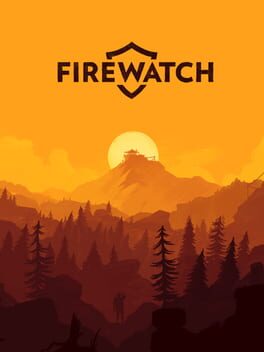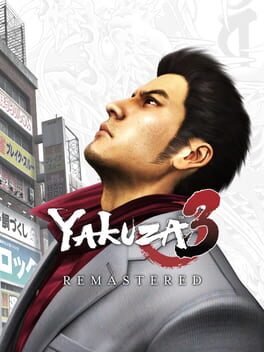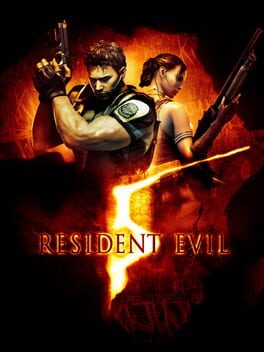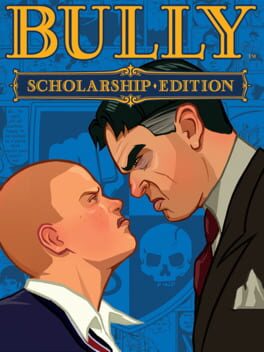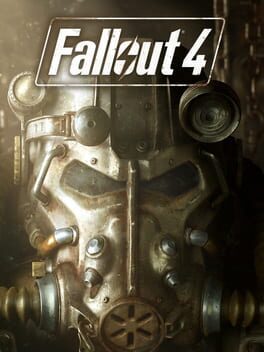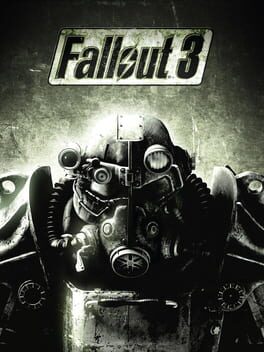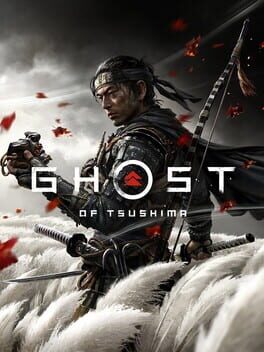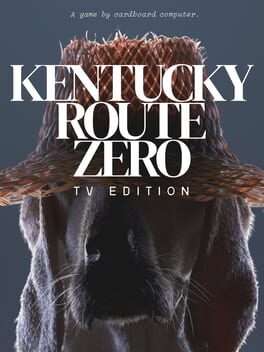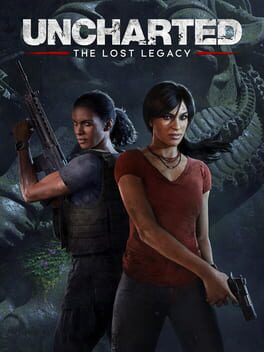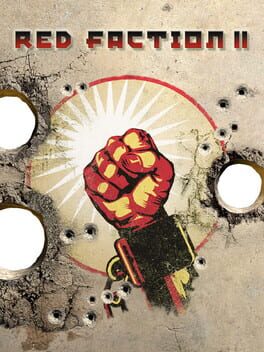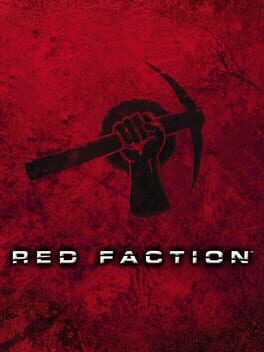luther_manhole
2016
Was expecting a bit more out of this based on how I remember people talking about it when it came out. It starts out strong, very effective at getting you emotionally invested. I was all-in, cared about Henry's well being, was intrigued by the mysterious hints of weirdness going on, was speculating wildly about Delilah's character and motivations (the voice acting is great, by the way, the quality of the performances really helped carry the dialogue that otherwise could've felt pretty dated, as there's a fair share of very 2010's "um...did that just happen?" style banter in this game).
But the story just kinda...sputters out. No big satisfying reveal to the mystery, really, no deeper insights into Delilah or her motives. More than any other game in recent memory, this made me feel like I missed something important that would make the story all come together. But after looking into it, I guess I didn't?
I really appreciate the mood, tone and themes this game was exploring, but ultimately it's just that, a vibey little tone piece about grief and how if you try to run away from it it will always catch back up with you in the end. But I can't help wishing that Firewatch was either a bit more ambitious with its plot or gameplay or that it had something more interesting to say about its themes.
But the story just kinda...sputters out. No big satisfying reveal to the mystery, really, no deeper insights into Delilah or her motives. More than any other game in recent memory, this made me feel like I missed something important that would make the story all come together. But after looking into it, I guess I didn't?
I really appreciate the mood, tone and themes this game was exploring, but ultimately it's just that, a vibey little tone piece about grief and how if you try to run away from it it will always catch back up with you in the end. But I can't help wishing that Firewatch was either a bit more ambitious with its plot or gameplay or that it had something more interesting to say about its themes.
2013
A day or two ago it was the 11th anniversary of Infinite's release, and boy does this game stink, folks! It's very bad!
"What if there was a christofascist society where the underclasses rose up to overthrow their oppressors but - what a twist - what if in doing so, they revealed that they were just as bad as their oppressors?" Shut the fuck up, Ken Levine!! Parents, show this game to your kids that want to grow up to be game devs! This is what smug, narcissistic lib-brain does to a talented game director!
Even Neil Druckmann managed to improve at least the gameplay from TLOU to TLOU2, but Ken figured out a way to completely ruin the combat that Bioshock 2 nearly perfected! It's almost impressive!
(Only reason this isn't a half star is because the first hour or so is very pretty and that acapella Beach Boys cover was pretty neat. Do yourself a favor and instead of playing this game, go listen to some pretty Brian Wilson tunes, your life will be richer for it!)
"What if there was a christofascist society where the underclasses rose up to overthrow their oppressors but - what a twist - what if in doing so, they revealed that they were just as bad as their oppressors?" Shut the fuck up, Ken Levine!! Parents, show this game to your kids that want to grow up to be game devs! This is what smug, narcissistic lib-brain does to a talented game director!
Even Neil Druckmann managed to improve at least the gameplay from TLOU to TLOU2, but Ken figured out a way to completely ruin the combat that Bioshock 2 nearly perfected! It's almost impressive!
(Only reason this isn't a half star is because the first hour or so is very pretty and that acapella Beach Boys cover was pretty neat. Do yourself a favor and instead of playing this game, go listen to some pretty Brian Wilson tunes, your life will be richer for it!)
2018
This was my introduction to the franchise, which I've gathered may not have been the best choice, but here we are.
If this actually is the worst game in the series, I'm excited to keep going, since this was by no means terrible. But it was definitely a slog to get through at times.
Difficulty levels for fights are absolutely fucked. Random encounters are far too easy and forgettable, while the boss fights can be throw-your-controller-at-the-wall levels of frustrating. I'm not a huge fighting game guy so I can't fully articulate why, but the combat was simply...not very fun. Felt bad.
Leveling up, unlocking abilities and your inventory are also just not good. Poorly designed, poorly explained.
The characters and the world definitely have their charms, but their characterization is too shallow and their motivations and decision making at times just didn't make sense.
Ultimately, a charming game that keeps a brisk enough pace and changes setting enough to keep you from thinking too much about what a mediocre time it is.
If this actually is the worst game in the series, I'm excited to keep going, since this was by no means terrible. But it was definitely a slog to get through at times.
Difficulty levels for fights are absolutely fucked. Random encounters are far too easy and forgettable, while the boss fights can be throw-your-controller-at-the-wall levels of frustrating. I'm not a huge fighting game guy so I can't fully articulate why, but the combat was simply...not very fun. Felt bad.
Leveling up, unlocking abilities and your inventory are also just not good. Poorly designed, poorly explained.
The characters and the world definitely have their charms, but their characterization is too shallow and their motivations and decision making at times just didn't make sense.
Ultimately, a charming game that keeps a brisk enough pace and changes setting enough to keep you from thinking too much about what a mediocre time it is.
2009
2015
Well I remember actually having some fun with the combat in this one, which is more than I could say for 3. World was a bit bigger and a bit prettier than last time, which was to be expected. Story was still garbage though. A step forward from 3...maybe? But still very bad, at times hilariously so. Horrible, really anti-climactic ending. Couple good side quests, though.
The little settlement building thing was neat. Extremely weird and not at all what I expected from Bethesda at the time. But a refreshing change of pace. Shame that it was so limited and the interface on console made it borderline unusable. Felt like a late addition, rather than a system the game was built around from the beginning. In an alternate universe where this game was centered around the gameplay loop of scrounging supplies and materials for your settlements and then defending/upgrading them, I might've really loved this game. If the writing didn't suck so bad.
The little settlement building thing was neat. Extremely weird and not at all what I expected from Bethesda at the time. But a refreshing change of pace. Shame that it was so limited and the interface on console made it borderline unusable. Felt like a late addition, rather than a system the game was built around from the beginning. In an alternate universe where this game was centered around the gameplay loop of scrounging supplies and materials for your settlements and then defending/upgrading them, I might've really loved this game. If the writing didn't suck so bad.
2008
Just saw a post about this game on twitter that made me angry about it all over again. It still blows me away that so many people loved this game so much.
All-time stinker of a main story, legendarily bad and rightfully so. Gunplay sucked. Dialogue too. Only redeeming quality is that trademark Bethesda-Style open world, which was large and pretty and had some neat stuff to discover here and there, but without the rich lore and worldbuilding of the Elder Scrolls it just didn't do it for me as much.
Absolutely no reason to go back and play this game when New Vegas exists.
All-time stinker of a main story, legendarily bad and rightfully so. Gunplay sucked. Dialogue too. Only redeeming quality is that trademark Bethesda-Style open world, which was large and pretty and had some neat stuff to discover here and there, but without the rich lore and worldbuilding of the Elder Scrolls it just didn't do it for me as much.
Absolutely no reason to go back and play this game when New Vegas exists.
2020
GoT doesn't really do anything poorly, does a few things very well, and ultimately adds up to "Really good! if you're into that kind of game."
Extremely beautiful, naturalistic huge open world, but not a ton of environmental storytelling going on (unless endless destroyed homesteads and massacred villagers really gets you going). Would've loved to have learned some more about the people, culture and history of Tsushima, could've added a lot of emotional weight to the invasion.
The swordplay is the game's strongest asset, it's something that I crave every few months now since the game's release. I'll load up the game, wipe out a few enemy camps, fight a duel or two, and then put the game away, satisfied, until the craving returns again.
The biggest disappointment here is the writing. I played in Japanese w/ English subtitles, which I absolutely loved having as an option. That, combined with the excellent audio design and gorgeous world, had me fully bought in for the first few hours, but I gradually lost interest in the story and characters.
Characters are largely forgettable, basically serving as archetypes to play their part in the story that broadly deals with family, honor and tradition. It's all fine, very well-executed, but very safe and without a ton of personality.
By far the biggest highlights were the mythical tales that unlocked Jin's special abilities, the art style was great, stylistic and distinctive. Some of the best-designed quests too, usually ending in one of those ever-satisfying duels.
Loved the slower-paced flourishes too, composing haikus was surprisingly rewarding and the fox dens and hot springs provided excellent little moments of serenity. More of this in GoT2, please!
In all, I feel roughly the same way about this game as I do the Horizon series: I am begging you, please find some really talented writers and give them creative control of these games! You add a good story with some memorable characters to these open worlds and this quality of gameplay, you could have an all-time great game on your hands!
Extremely beautiful, naturalistic huge open world, but not a ton of environmental storytelling going on (unless endless destroyed homesteads and massacred villagers really gets you going). Would've loved to have learned some more about the people, culture and history of Tsushima, could've added a lot of emotional weight to the invasion.
The swordplay is the game's strongest asset, it's something that I crave every few months now since the game's release. I'll load up the game, wipe out a few enemy camps, fight a duel or two, and then put the game away, satisfied, until the craving returns again.
The biggest disappointment here is the writing. I played in Japanese w/ English subtitles, which I absolutely loved having as an option. That, combined with the excellent audio design and gorgeous world, had me fully bought in for the first few hours, but I gradually lost interest in the story and characters.
Characters are largely forgettable, basically serving as archetypes to play their part in the story that broadly deals with family, honor and tradition. It's all fine, very well-executed, but very safe and without a ton of personality.
By far the biggest highlights were the mythical tales that unlocked Jin's special abilities, the art style was great, stylistic and distinctive. Some of the best-designed quests too, usually ending in one of those ever-satisfying duels.
Loved the slower-paced flourishes too, composing haikus was surprisingly rewarding and the fox dens and hot springs provided excellent little moments of serenity. More of this in GoT2, please!
In all, I feel roughly the same way about this game as I do the Horizon series: I am begging you, please find some really talented writers and give them creative control of these games! You add a good story with some memorable characters to these open worlds and this quality of gameplay, you could have an all-time great game on your hands!
KRZ is an impressionistic, magical realist game about legacy, traditions - the things that are passed down from one generation to the next both in the sense of regular people and the communities that they populate, and of artists and the history and traditions of their schools of art. The game is very aware of its own influences and the wide variety of artistic mediums and traditions that it draws from, it's extremely dense with references and allusions (I caught just enough of them to know that there were way more that went over my head).
KRZ is more interested in being thought-provoking and evocative than it is trying to make any bold declarative statements about the way in which society is constructed or anything like that. In that way I find it very interesting that this game is compared so often to Disco Elysium, a game which had a direct and very materialist political analysis, whereas KRZ is much more descriptive than prescriptive.
It is extremely effective at evoking feelings of loss, decay, and mourning, while always making sure to remind that there is no decay without regrowth. Death and disposal - of people and communities, of artists and their art, even of office supplies (keep an eye out for those cute lil crabs just making the best of what they've got) - is never the end of anything, just another transformation, part of an ever-ongoing conversation echoing back and forth into itself forever. You take what you need and leave the rest.
The headiness, amount of reading required and lack of an immediately gratifying "fun" gameplay loop will probably make a lot of people bounce off of this game, which is a shame, because it's the rare game that truly rewards deeper examination and carries en emotional heft that will have me thinking back to certain scenes, songs and lines for years to come.
A true classic, one of the best games of its size that I've ever played. Just missed being one of my GOAT's, but wouldn't be surprised if later reexamination bumps this game up there for me.
KRZ is more interested in being thought-provoking and evocative than it is trying to make any bold declarative statements about the way in which society is constructed or anything like that. In that way I find it very interesting that this game is compared so often to Disco Elysium, a game which had a direct and very materialist political analysis, whereas KRZ is much more descriptive than prescriptive.
It is extremely effective at evoking feelings of loss, decay, and mourning, while always making sure to remind that there is no decay without regrowth. Death and disposal - of people and communities, of artists and their art, even of office supplies (keep an eye out for those cute lil crabs just making the best of what they've got) - is never the end of anything, just another transformation, part of an ever-ongoing conversation echoing back and forth into itself forever. You take what you need and leave the rest.
The headiness, amount of reading required and lack of an immediately gratifying "fun" gameplay loop will probably make a lot of people bounce off of this game, which is a shame, because it's the rare game that truly rewards deeper examination and carries en emotional heft that will have me thinking back to certain scenes, songs and lines for years to come.
A true classic, one of the best games of its size that I've ever played. Just missed being one of my GOAT's, but wouldn't be surprised if later reexamination bumps this game up there for me.
Naughty Dog has never been great at writing well-developed, complex characters IMO, instead relying on quality performances from their stable of usually very talented actors. And it's not that the performances for Chloe and Nadine were particularly bad or anything - Chloe's voice acting was actually quite charming at times - but they weren't great enough to lift this game above "pretty good!" tier, for me.
Some gorgeous, memorable set pieces, as you would expect from an Uncharted title. But relatively cookie cutter characters and a formulaic, Macguffin fetch-quest story makes for a fun, lighthearted, and good! but not great, game.
Worth checking out for any big Naughty Dog heads, but not a game that's gonna convert many skeptics.
Some gorgeous, memorable set pieces, as you would expect from an Uncharted title. But relatively cookie cutter characters and a formulaic, Macguffin fetch-quest story makes for a fun, lighthearted, and good! but not great, game.
Worth checking out for any big Naughty Dog heads, but not a game that's gonna convert many skeptics.
2002
Red Faction was a game with some interesting ideas and fun gameplay that ended up mediocre thanks to a lack of focus and bad writing. Red Faction 2 doubles down on that in the worst possible way - more destructible environments and more guns, sure, but with even more lazy, uninspired world building and terrible writing in general. Some of these characters, man. Calling them cartoonish would be unfair to cartoons.
Could've been a great game if they focused on improving RF's biggest weaknesses, but instead it was a huge missed opportunity.
Could've been a great game if they focused on improving RF's biggest weaknesses, but instead it was a huge missed opportunity.
2001
There was a time when I was about 13 that I would've listed this among my favorite games. The destructible environments did make for an extremely good time, tunneling your way through mine walls or blowing the ground out from underneath enemies never got old. And any game with a working class revolution as the inciting incident is always gonna be right up my alley.
But nostalgia's a hell of a thing. Turns out the destructible environments were pretty limited, the vehicle sections that I remembered fondly were actually monotonous slogs a lot of the time and the writing and plot does absolutely nothing with the potential of the game's premise.
An ambitious game with interesting ideas and fun mechanics that falls flat after its extremely promising beginning.
But nostalgia's a hell of a thing. Turns out the destructible environments were pretty limited, the vehicle sections that I remembered fondly were actually monotonous slogs a lot of the time and the writing and plot does absolutely nothing with the potential of the game's premise.
An ambitious game with interesting ideas and fun mechanics that falls flat after its extremely promising beginning.
A one of a kind masterpiece. This isn't just the best written game of all time, it's the best written game of all time by a fucking mile. This game made me laugh more than every other video game I have ever played combined.
And this game made me emotional in a way that no other game has. Might be in part because the game's devs and I share similar politics, or maybe it's how the game's overarching theme of confronting profound loss, living in the wreckage of it and figuring out how to pick up the pieces and move forward, happened to really resonate with me and my circumstances at the time I played it.
This might not be the game I go back to replay the most often, but I think it's the game whose themes and ideas will live on in my head for the longest.
And this game made me emotional in a way that no other game has. Might be in part because the game's devs and I share similar politics, or maybe it's how the game's overarching theme of confronting profound loss, living in the wreckage of it and figuring out how to pick up the pieces and move forward, happened to really resonate with me and my circumstances at the time I played it.
This might not be the game I go back to replay the most often, but I think it's the game whose themes and ideas will live on in my head for the longest.
Other entries in the series may do individual things better than Snake Eater, but this is easily the most well-rounded MGS game. If you need to Kojima-pill someone and you can only make them play one game, this should be your choice.
Has solid doses of everything that keeps us Kojima connoisseurs coming back for more: Fantastic gameplay that felt like it was from the future (compare this to other action games from '04, it's incredible), always fun and occasionally brilliantly insightful writing, gorgeous cinematics and stunning set pieces. It has arguably the most emotional ending of any Metal Gear title, too, with one of the all time great boss battles.
Hideo-heads stay winning
Has solid doses of everything that keeps us Kojima connoisseurs coming back for more: Fantastic gameplay that felt like it was from the future (compare this to other action games from '04, it's incredible), always fun and occasionally brilliantly insightful writing, gorgeous cinematics and stunning set pieces. It has arguably the most emotional ending of any Metal Gear title, too, with one of the all time great boss battles.
Hideo-heads stay winning
2010
Obsidian made the best open world RPG I've ever played with the same engine Bethesda used to make Fallout 3, somehow.
Fantastic world design that rewards (and sometimes punishes!) exploration, in-game choices are impactful and actually make sense within the game's universe rather than feeling like tacked-on window dressing, which was often the case with many games of this era.
The bit where you can finally talk to Caesar in detail about his ideology and motivations is some all-time great video game dialogue. Figuring out that he'd built his entire ideology around a hilariously surface-level understanding of Hegelian dialectics is one of those bits of video game world building that really stands the test of time.
Brilliant writing and cohesive, deeply-fleshed out world building. Puts all of the Bethesda Fallout titles to shame.
Fantastic world design that rewards (and sometimes punishes!) exploration, in-game choices are impactful and actually make sense within the game's universe rather than feeling like tacked-on window dressing, which was often the case with many games of this era.
The bit where you can finally talk to Caesar in detail about his ideology and motivations is some all-time great video game dialogue. Figuring out that he'd built his entire ideology around a hilariously surface-level understanding of Hegelian dialectics is one of those bits of video game world building that really stands the test of time.
Brilliant writing and cohesive, deeply-fleshed out world building. Puts all of the Bethesda Fallout titles to shame.
